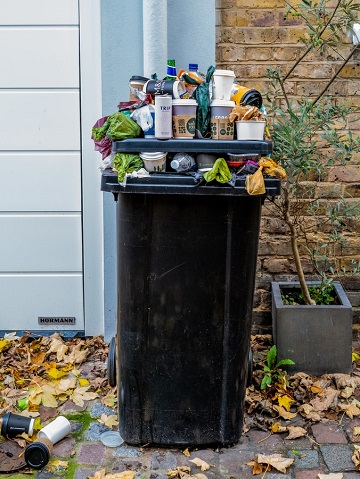Look for the party in power to move bills on this.
What is Extended Producer Responsibility? This is the latest buzz phrase for the 2021 session. The EPR could just as easily stand for Environment Production Restrictions. The concept requires manufacturers to manage or pay for the full life cycle of a product, known as managing the product from “cradle to grave.â€
Initially, the concept was created to help manage products that are difficult or hazardous to dispose of such as batteries, paint, mattresses, and electronics. Recently plastics has been on the agenda. EPR operates by requiring consumers to pay a transparent fee at the point of purchase that covers the cost of disposal or recycling of the product. It became complicated when paint was added as an EPR.
In 2009 Oregon became the first state in the nation to enact a law requiring architectural paint manufacturers to start a
program to reduce paint waste, increase reuse and recycling, and safely dispose of remaining unusable paint and other coatings. It was designed to coordinate with local waste collection programs, saving local governments money in transportation and disposal costs. The paint EPR started as a pilot and now is managed by a third party, PaintCare, that provides outreach and consumer education. Paint is a waste hazard that makes up the largest volume of household waste. The program resolved waste of an estimated 750,000 gallons of unused paint per year.
The proposed EPR program has no standards for being a hazard or being difficult to dispose. It proposes that businesses manage all aspects of recycling materials with no shared responsibility with consumers or recyclers. A good program must have shared responsibility between all parties, improve recycling and the supporting infrastructure, improve product packaging, and educate consumers on recycling.
A D V E R T I S E M E N T

A D V E R T I S E M E N T
Opposition from local governments could be strong not wanting to increase costs for rate payers, and waste haulers will not want to lose potential revenue. Materials that have developed their own avenue for disposal will want an exclusion: glass will want out because of the bottle bill. Metals and paper will want out because of developed markets and plastics will have concerns about the cost of the program.
EPR makes some sense with high-hazard, low-value items such as used car batteries. It makes less sense with low-hazard items such as plastic. As with single-use shopping bags, legislation puts a mandated price on the item, stripping free market decisions from businesses. The concept is an environmental push to control the ingenuity of the free market and makes little sense while businesses struggle to recover from multiple shut-downs.
--Donna Bleiler| Post Date: 2020-12-26 06:27:42 | Last Update: 2020-12-27 15:01:07 |







